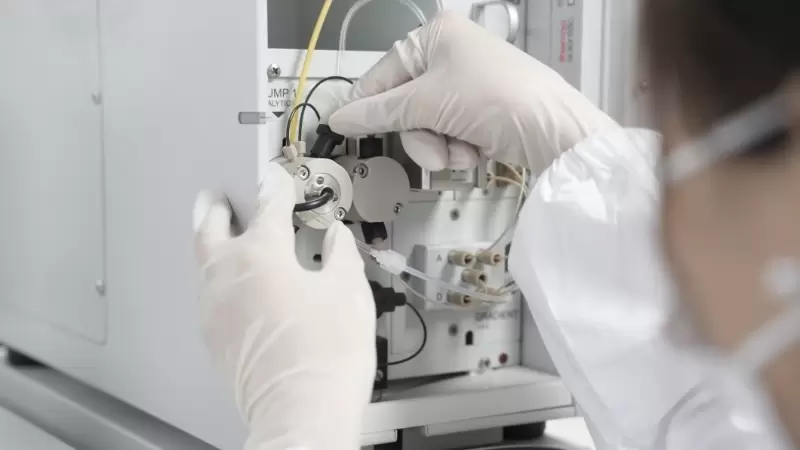 Article source:Kexing Biopharm
Article source:Kexing Biopharm Dec 31,2024
Dec 31,2024 View:
1400
View:
1400 In the rapidly evolving landscape of pharmaceuticals, recombinant protein drugs have emerged as a cornerstone of modern healthcare. These cutting-edge therapies offer unprecedented precision and efficacy in treating a myriad of diseases. As the demand for these advanced treatments grows, the importance of reliable recombinant protein drug suppliers becomes increasingly paramount. This article delves into the world of recombinant protein drugs, examining the role of suppliers in the pharmaceutical industry and the factors that contribute to their success.
Recombinant proteins are proteins produced using recombinant DNA technology. This involves the insertion of a gene encoding for a specific protein into a host organism, which then produces the protein. This technology has significantly advanced the way we develop and manufacture drugs, enabling the production of sophisticated protein-based therapies that were more challenging to achieve in the past. Understanding the science behind recombinant proteins is crucial for appreciating the role of suppliers in this field.
Quality is a non-negotiable aspect when it comes to pharmaceuticals, and this is especially true for recombinant protein drugs. Suppliers must adhere to the highest standards of quality control to ensure the safety and efficacy of the products they provide. This includes rigorous testing, adherence to Good Manufacturing Practices (GMP), and compliance with regulatory guidelines. The reputation of a recombinant protein drug supplier is built on the consistent delivery of high-quality products.
Regulatory compliance is a critical factor in the pharmaceutical industry, and it plays a significant role in the operations of recombinant protein drug suppliers. Suppliers must navigate a complex web of regulations that govern everything from the production process to the distribution of their products. Compliance with these regulations is not only a legal requirement but also a testament to a supplier's commitment to safety and quality.
Recombinant protein drugs have had a profound impact on the treatment of various diseases. From cancer to rare genetic disorders, these therapies have opened up new avenues for treatment and have improved the quality of life for countless patients. Understanding the specific applications of recombinant proteins in disease treatment is essential for suppliers to meet the needs of the market.
Cancer Treatments and Recombinant Proteins
Cancer is one of the leading causes of death worldwide, and the development of new treatments is a priority for researchers and pharmaceutical companies alike. Recombinant protein drugs have played a significant role in this fight, offering targeted therapies that can specifically attack cancer cells while sparing healthy tissue. Suppliers of these drugs must be aware of the latest research and advancements in cancer treatment to stay competitive in the market.
Rare Disease Therapies and the Need for Specialized Suppliers
Rare diseases, by their very nature, present unique challenges when it comes to treatment. Recombinant protein drugs have been instrumental in developing therapies for these conditions, as they can be tailored to address the specific proteins affected by these diseases. This has led to a growing need for specialized recombinant protein drug suppliers who can meet the unique demands of this market.
Vaccines are one of the most effective tools in preventing the spread of infectious diseases. Recombinant protein technology has been crucial in the development of new vaccines, allowing for the rapid production of antigens that can be used in vaccination campaigns. Suppliers play a vital role in ensuring that these vaccines are produced at scale and meet the high standards required for widespread use.
As the pharmaceutical industry continues to evolve, the role of recombinant protein drug suppliers will only become more critical. Investment in research and development, as well as the adoption of new technologies, will be key to staying ahead in this competitive market.
Investment in Research and Development
The pharmaceutical industry is heavily reliant on innovation, and this is particularly true for recombinant protein drug suppliers. Investing in research and development allows these companies to stay at the forefront of new discoveries and to develop new products that can meet the needs of an ever-changing market.
Adoption of New Technologies
Technological advancements have the potential to significantly transform the processes involved in the production and supply of recombinant protein drugs. From automation to artificial intelligence, these technologies can increase efficiency, reduce costs, and improve the overall quality of the products. Suppliers who embrace these advancements will be better positioned to succeed in the future.
Sustainability and the Pharmaceutical Industry
Sustainability is becoming an increasingly important consideration for companies across all industries, and the pharmaceutical sector is no exception. Recombinant protein drug suppliers must consider the environmental impact of their operations and strive to minimize their carbon footprint. This not only benefits the environment but can also enhance a company's reputation and appeal to environmentally conscious consumers.

The road ahead for recombinant protein drug suppliers is filled with both challenges and opportunities. Navigating these will require a combination of strategic planning, adaptability, and a commitment to excellence.
Challenges in the Supply Chain
The supply chain for recombinant protein drugs is complex, involving numerous steps from production to distribution. Ensuring that each step is efficient and reliable is a significant challenge for suppliers. Any disruption in the supply chain can have serious consequences for the availability of these life-saving drugs.
Opportunities in Emerging Markets
As global populations grow and the demand for healthcare increases, emerging markets present significant opportunities for recombinant protein drug suppliers. These markets often have unmet needs and present opportunities for growth and expansion.
In conclusion, recombinant protein drug suppliers play a vital role in the global healthcare ecosystem. Their ability to provide high-quality, effective treatments is crucial to the health and well-being of millions of people worldwide. As the pharmaceutical industry continues to evolve, the importance of these suppliers will only grow. By focusing on quality, regulatory compliance, innovation, and sustainability, recombinant protein drug suppliers can ensure their success in this dynamic and critical industry.